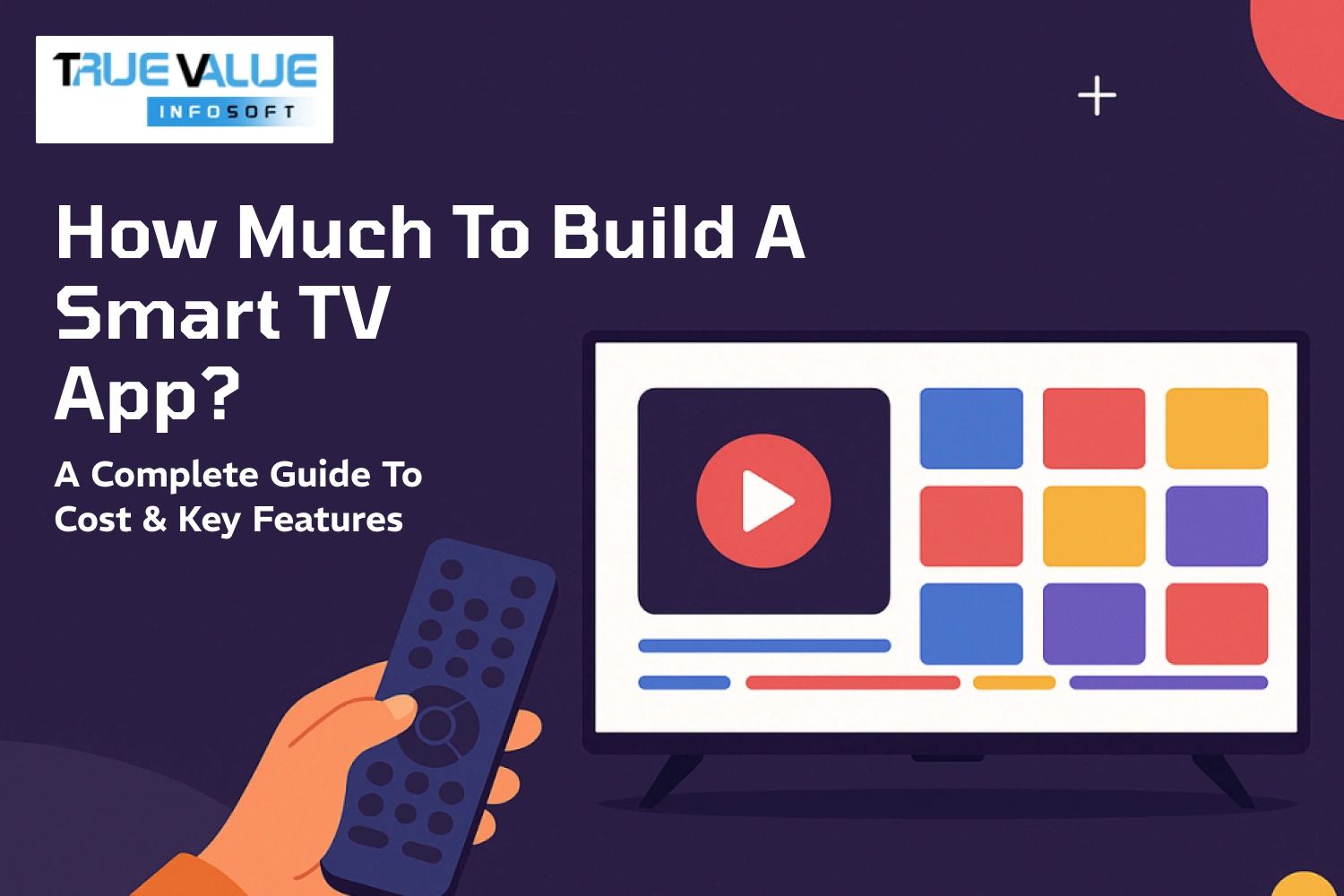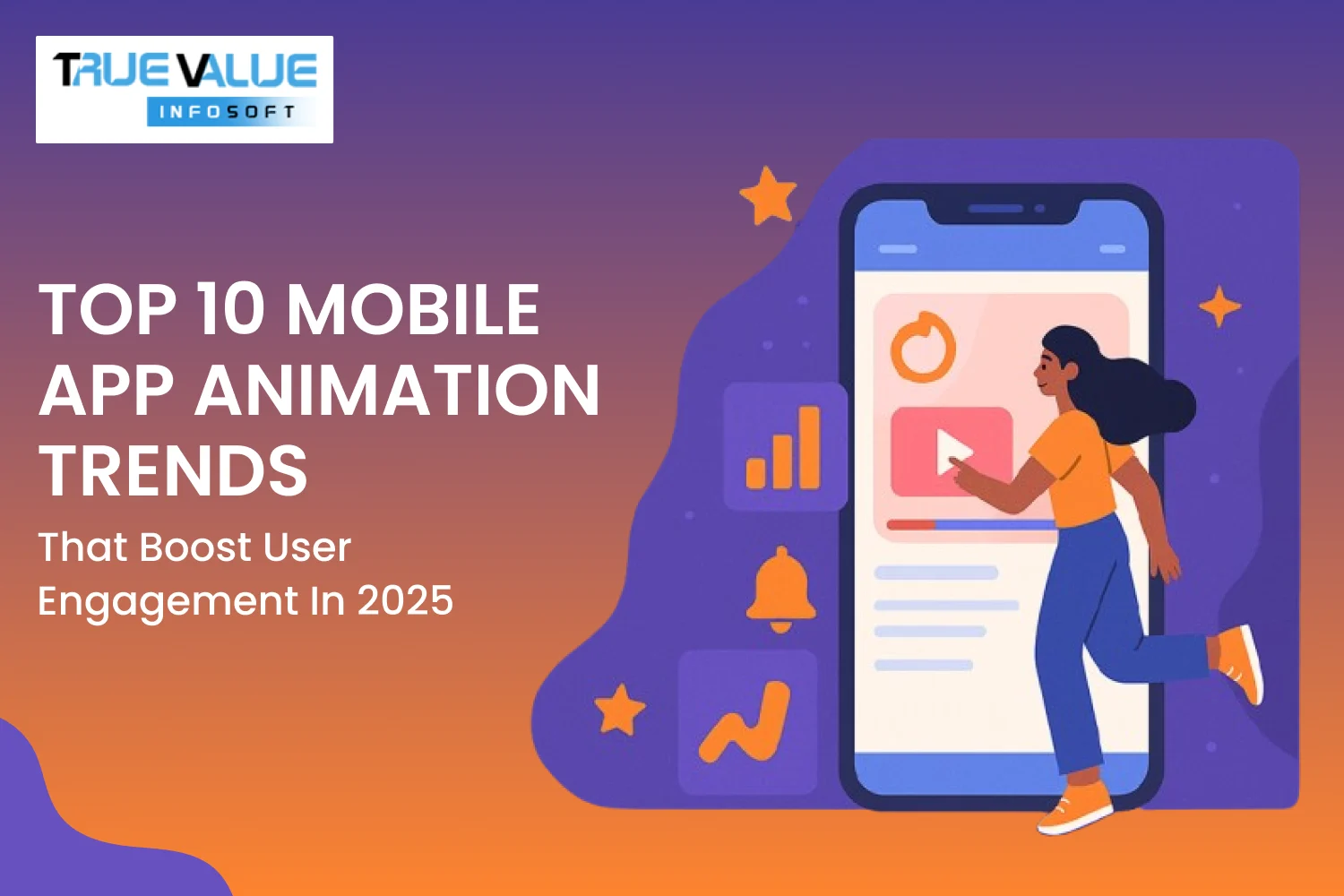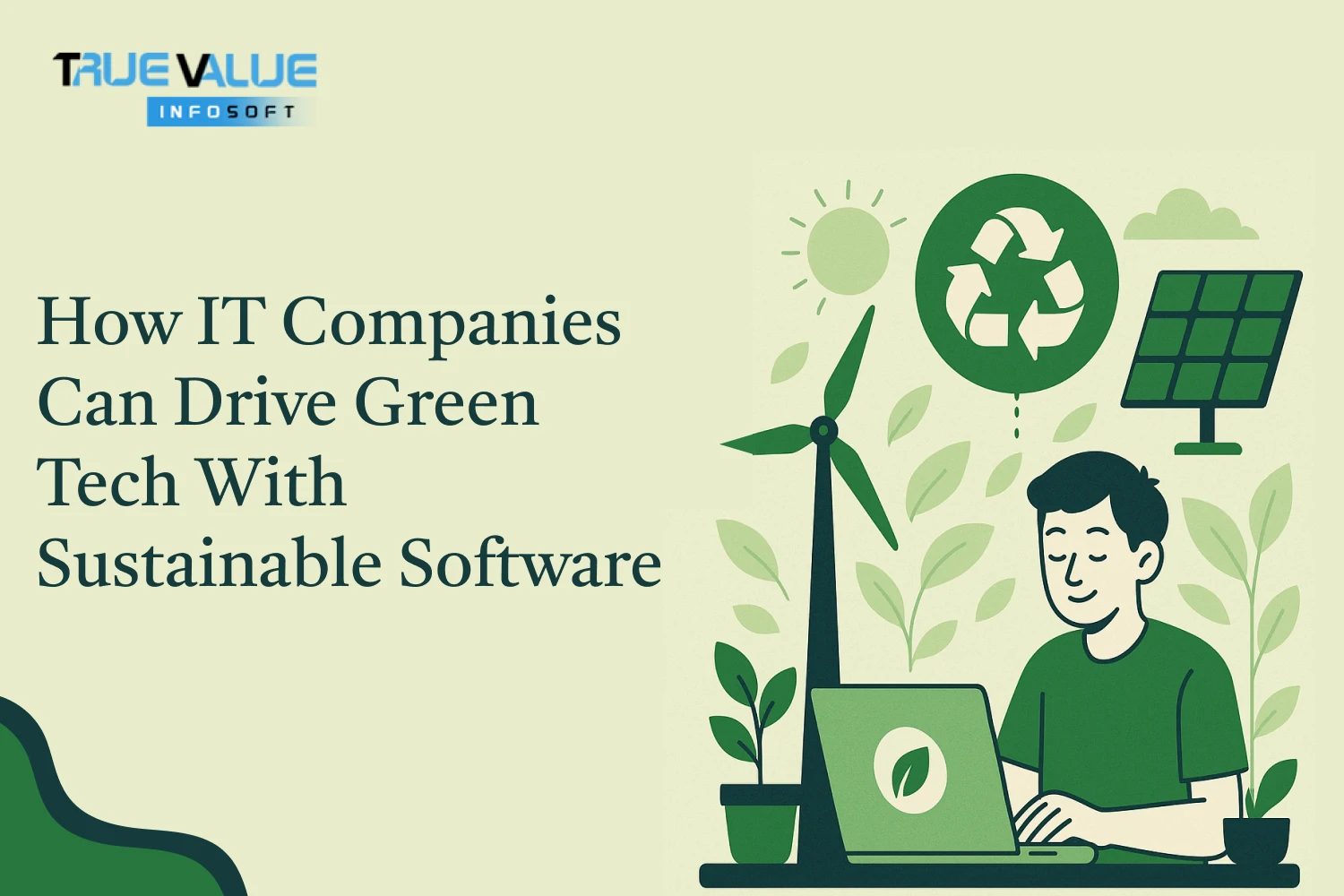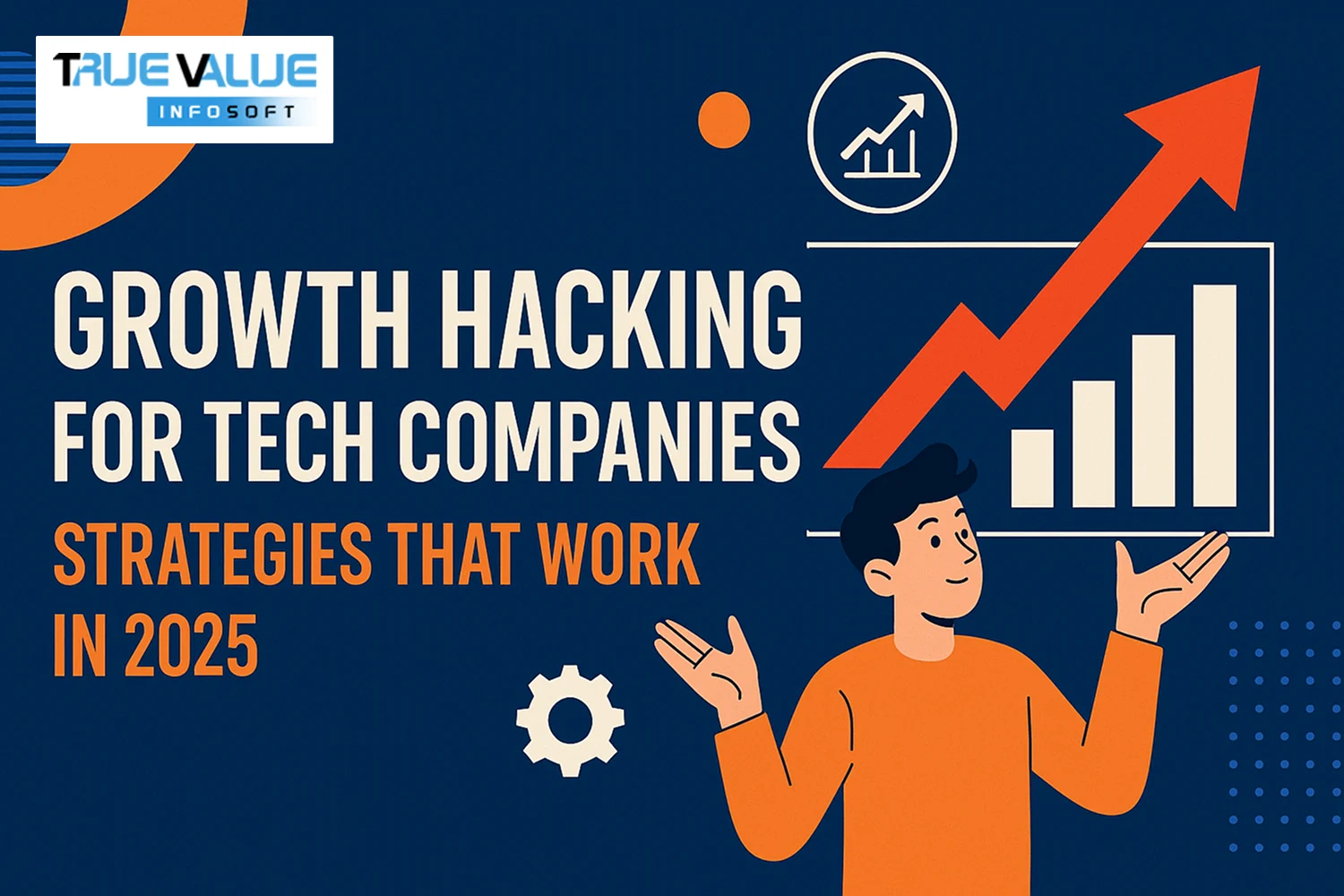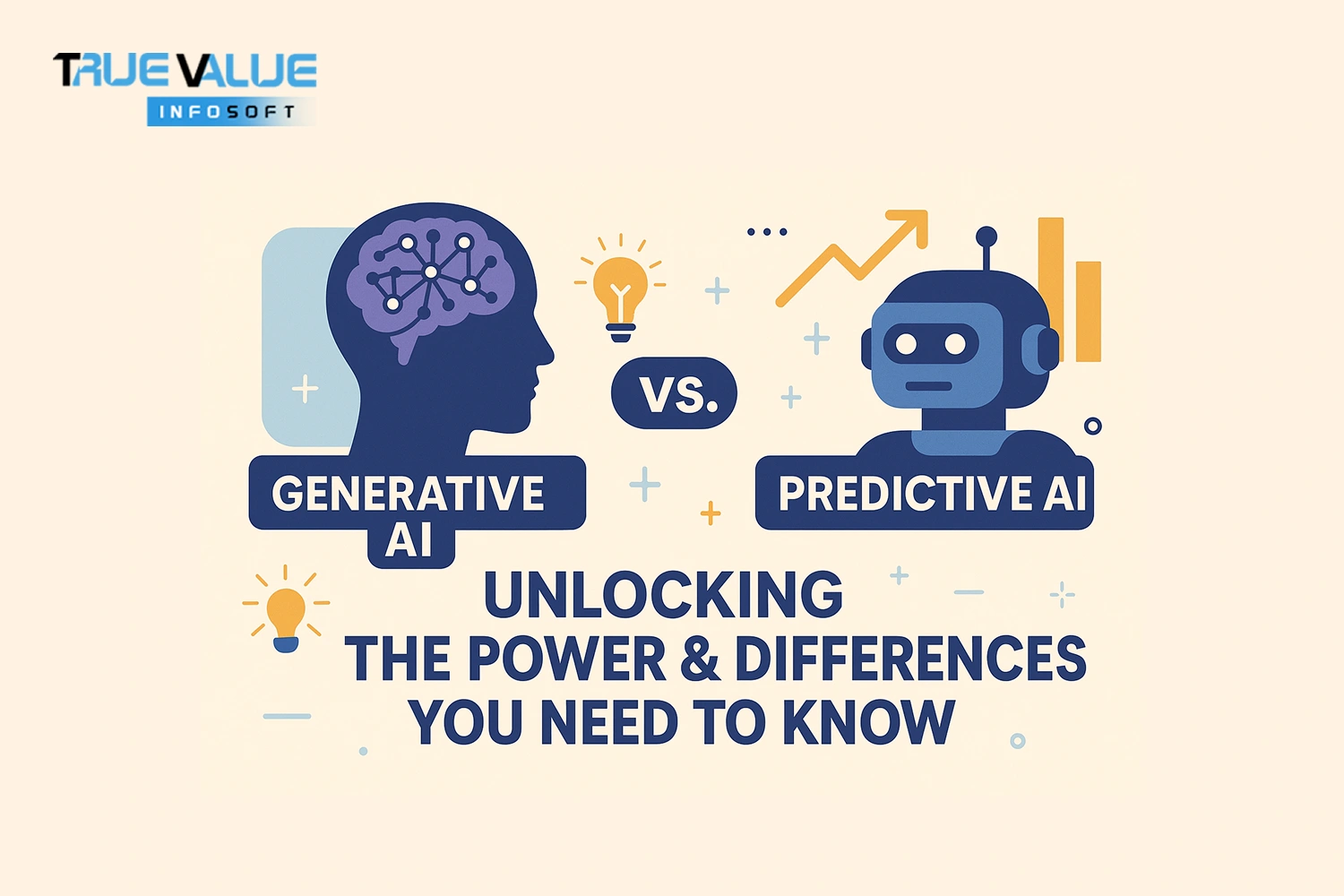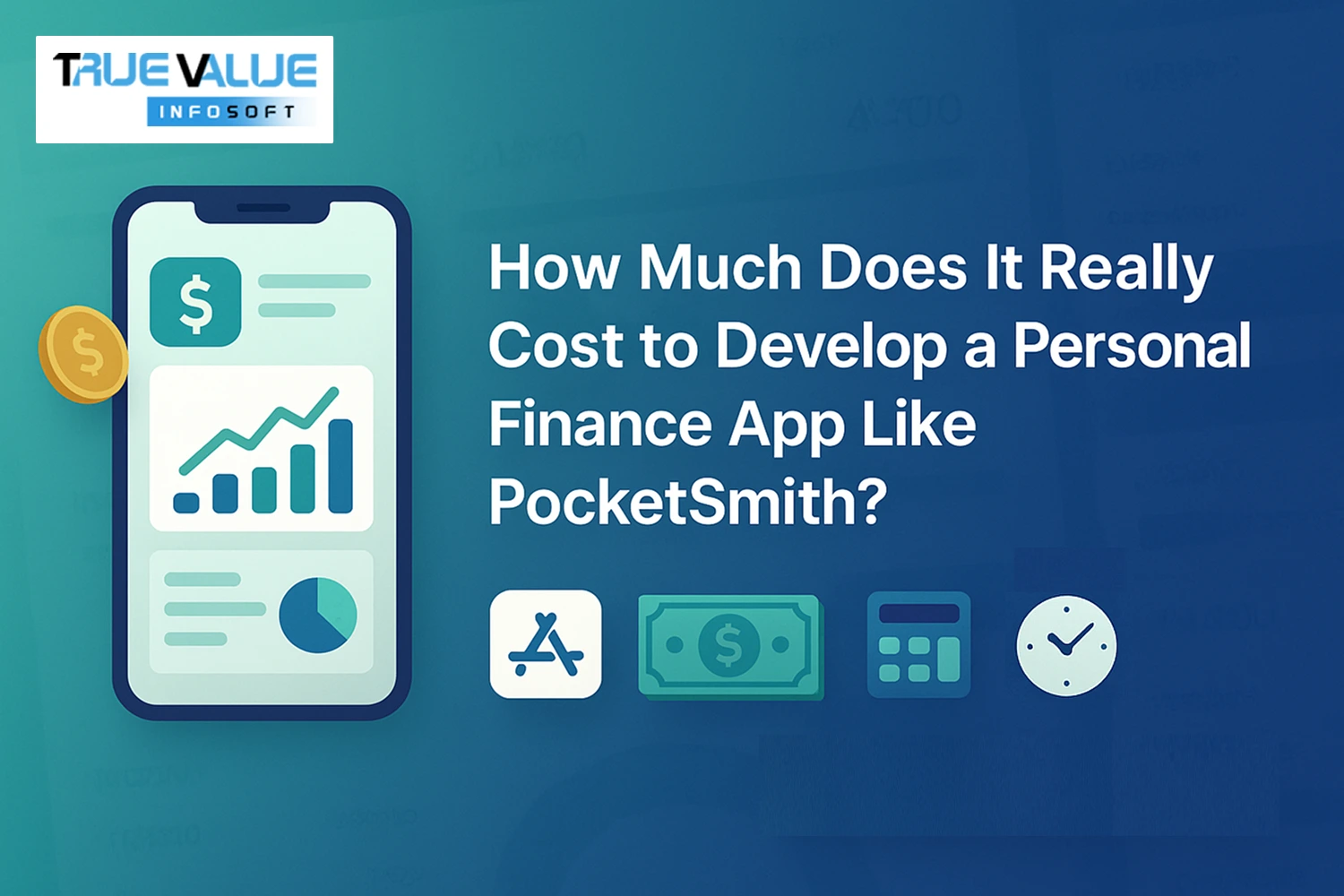Introduction
Wondering how much it costs to build a smart TV app in today’s competitive digital landscape? Developing a smart TV app can be a game-changer for businesses looking to engage users on larger screens with seamless streaming, interactive content, and smart home integrations. However, the cost varies widely depending on the app’s complexity, platform (like Samsung Tizen, LG webOS, Android TV), features, and the development company you choose.
When estimating the cost, key features such as user authentication, content management systems, video streaming quality, multi-device support, and personalized recommendations all influence the budget. Additional factors include UI/UX design, backend infrastructure, third-party integrations, and post-launch maintenance.
For businesses aiming to launch a reliable and user-friendly smart TV app, partnering with the Mobile app development company in India — True Value Infosoft — is a wise choice. Known for its expertise in delivering custom smart TV solutions, True Value Infosoft offers competitive pricing without compromising quality. Their skilled developers craft apps optimized for performance, compatibility, and smooth user experience across all major smart TV platforms.
Whether you’re targeting entertainment, e-commerce, or educational content, understanding the cost breakdown and features is essential. True Value Infosoft stands ready to guide you through this journey, ensuring your smart TV app delivers maximum impact in 2025 and beyond.
Understanding Smart TV Apps: Types and Platforms
Smart TV apps come in various forms depending on the platform and the target audience. Before diving into cost analysis, it's essential to understand the different categories and platforms where your app might be deployed.
Types of Smart TV Apps
- Streaming Apps: The most common type, these apps deliver video content on demand. Examples include Netflix, Hulu, and YouTube. They require robust video delivery infrastructure and adaptive streaming.
- Gaming Apps: Some Smart TVs support casual and arcade-style games. These apps focus on interactive entertainment and may leverage device hardware for controls.
- Utility and Lifestyle Apps: Apps such as weather forecasts, news aggregators, and fitness guides that provide additional utility beyond video.
- Social & Communication Apps: Apps like Skype or social media apps adapted for the TV interface, allowing users to interact via chat or video calls.
Major Smart TV Platforms
- Android TV: Powered by Google, this OS supports a wide range of devices including Sony, TCL, and Nvidia Shield. Development typically uses Android SDK with Java/Kotlin.
- Apple tvOS: Exclusive to Apple TV devices, this platform leverages the tvOS SDK with Swift or Objective-C.
- Samsung Tizen: Samsung’s proprietary OS for its smart TVs. Development involves using Tizen Studio with web technologies (HTML5, JavaScript).
- LG webOS: Another web technology-based platform. Apps are built using Enact framework or pure HTML5.
- Amazon Fire TV: Based on Android but with its own SDK and app store, targeting Amazon’s Fire TV devices.
Each platform has specific development tools, design guidelines, and certification requirements that affect development time and costs.
Key Features of a Smart TV App
To estimate the cost and scope, understanding essential features your Smart TV app needs is critical. The features can be categorized into basic, advanced, and optional enhancements.
Basic Features
- User Authentication and Profiles: Allowing users to create accounts, log in, and maintain personalized profiles.
- Content Browsing & Search: Enabling users to browse content libraries, filter categories, and search for titles.
- Video Playback: Streaming functionality with support for different video formats and adaptive bitrate streaming (HLS, DASH).
- User Interface (UI) and Navigation: TV-optimized UI with remote control navigation support, large fonts, and accessible layouts.
- Settings & Preferences: Allowing users to customize subtitle language, video quality, and notification preferences.
Advanced Features
- Recommendations & Personalization: AI-driven content suggestions based on viewing history and preferences.
- Download for Offline Viewing: Allowing users to download videos for offline consumption.
- Multi-language & Subtitles: Support for multiple audio tracks and subtitle languages.
- Social Sharing & Interaction: Enabling users to share content or interact with social media from the app.
- Casting & Second Screen Support: Integration with mobile devices to cast content or control playback.
- Parental Controls: Restrictions and monitoring features for family-friendly use.
Optional & Niche Features
- Live Streaming & DVR: Support for live TV channels and digital video recording.
- In-app Purchases & Subscription Management: Monetization features for premium content or upgrades.
- Ad Integration: Display ads to generate revenue, including targeted video ads.
- Analytics & Reporting: Tools for tracking user engagement, app performance, and content popularity.
- Voice Search & Commands: Using voice recognition for navigation and content search.
- Third-party Integrations: Integrations with smart home devices or other digital ecosystems.
The Smart TV App Development Process
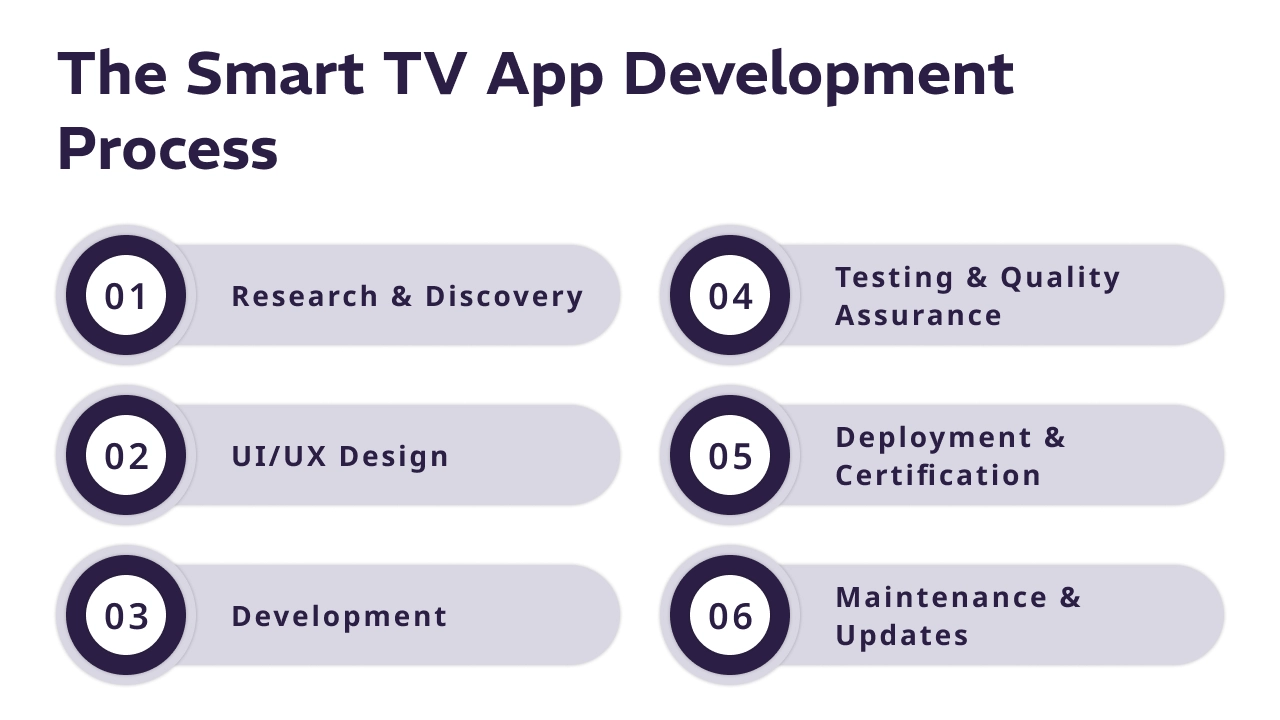
Building a Smart TV app involves a systematic approach, each phase contributing to the overall cost and timeline.
1. Research & Discovery
This stage defines the app’s goals, target audience, platform selection, competitor analysis, and feature list. It often involves workshops with stakeholders and technical feasibility studies.
2. UI/UX Design
Smart TV apps require distinct user interfaces compared to mobile or web. Designers must optimize layouts for big screens, remote navigation, and accessibility. Wireframes, prototypes, and user testing happen here.
3. Development
- Front-end development: Building the user interface with platform-specific SDKs and programming languages.
- Back-end development: Setting up servers, databases, APIs for content management, authentication, and streaming services.
- Integration: Connecting third-party services such as video CDNs, analytics, payment gateways, and ad networks.
4. Testing & Quality Assurance
Testing on multiple devices and platforms to ensure compatibility, responsiveness, and performance. Includes functional testing, UI testing, performance testing, and certification testing.
5. Deployment & Certification
Submitting the app to TV platform stores, which involves meeting platform-specific requirements, obtaining certifications, and adhering to app store guidelines.
6. Maintenance & Updates
Post-launch updates for feature enhancements, bug fixes, security patches, and adapting to new OS versions or device capabilities.
Cost Breakdown of Building a Smart TV App
Several factors influence the overall cost of building a Smart TV app. Let’s dissect each element to provide a transparent cost model.
Platform Selection and Complexity
Developing for a single platform like Android TV will cost less than building a multi-platform app covering Apple tvOS, Samsung Tizen, and LG webOS. Platform SDKs have varying complexity, affecting development time.
| Platform | Development Complexity | Approximate Development Time |
|---|---|---|
| Android TV | Moderate | 3-4 months |
| Apple tvOS | Moderate to High | 4-5 months |
| Samsung Tizen | High | 4-6 months |
| LG webOS | High | 4-6 months |
| Amazon Fire TV | Moderate | 3-4 months |
Features and Functionalities
Each feature adds development time and cost. For instance:
- Basic video streaming might take 300-400 hours.
- User profiles and authentication add 100-150 hours.
- AI-driven recommendations could require 200-300 hours.
- Offline download features can add another 100-150 hours.
- Voice control might require 150-200 hours.
Hourly rates depend on the region and expertise:
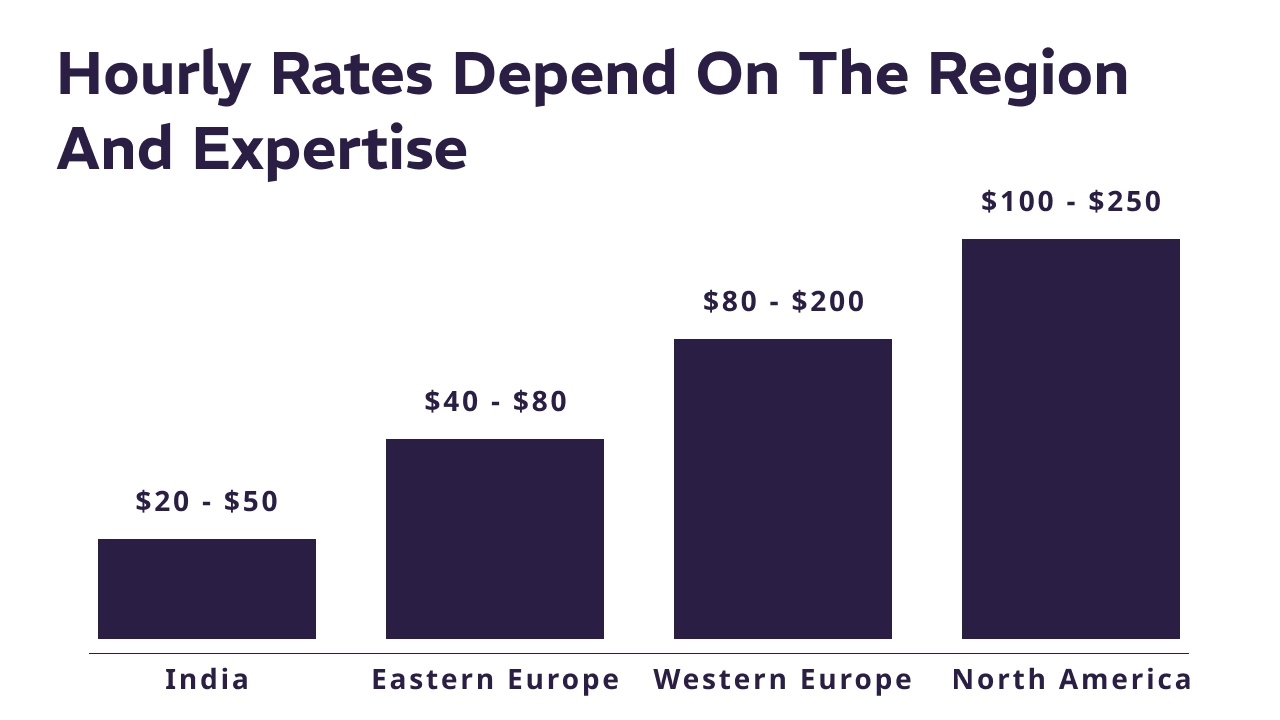
| Region | Hourly Rate (USD) |
|---|---|
| North America | $100 - $250 |
| Western Europe | $80 - $200 |
| Eastern Europe | $40 - $80 |
| India | $20 - $50 |
Estimated Development Cost
Assuming mid-complexity app development in India:
- Research & Planning: 80 hours × $30 = $2,400
- UI/UX Design: 150 hours × $30 = $4,500
- Front-end Development: 600 hours × $30 = $18,000
- Back-end Development: 400 hours × $30 = $12,000
- Testing & QA: 200 hours × $30 = $6,000
- Deployment & Certification: 50 hours × $30 = $1,500
Total Estimated Cost: $44,400
For North America or Western Europe, the cost could multiply by 3 to 5 times due to higher hourly rates.
Additional Costs to Consider
- Video Hosting and CDN: Monthly costs depending on traffic, often $100-$1,000+
- Licensing Fees: Some platforms charge submission or certification fees.
- Maintenance: Typically 15-20% of initial development cost annually.
- Marketing & Promotion: Not part of development but crucial for app success.
Key Factors Influencing Smart TV App Cost
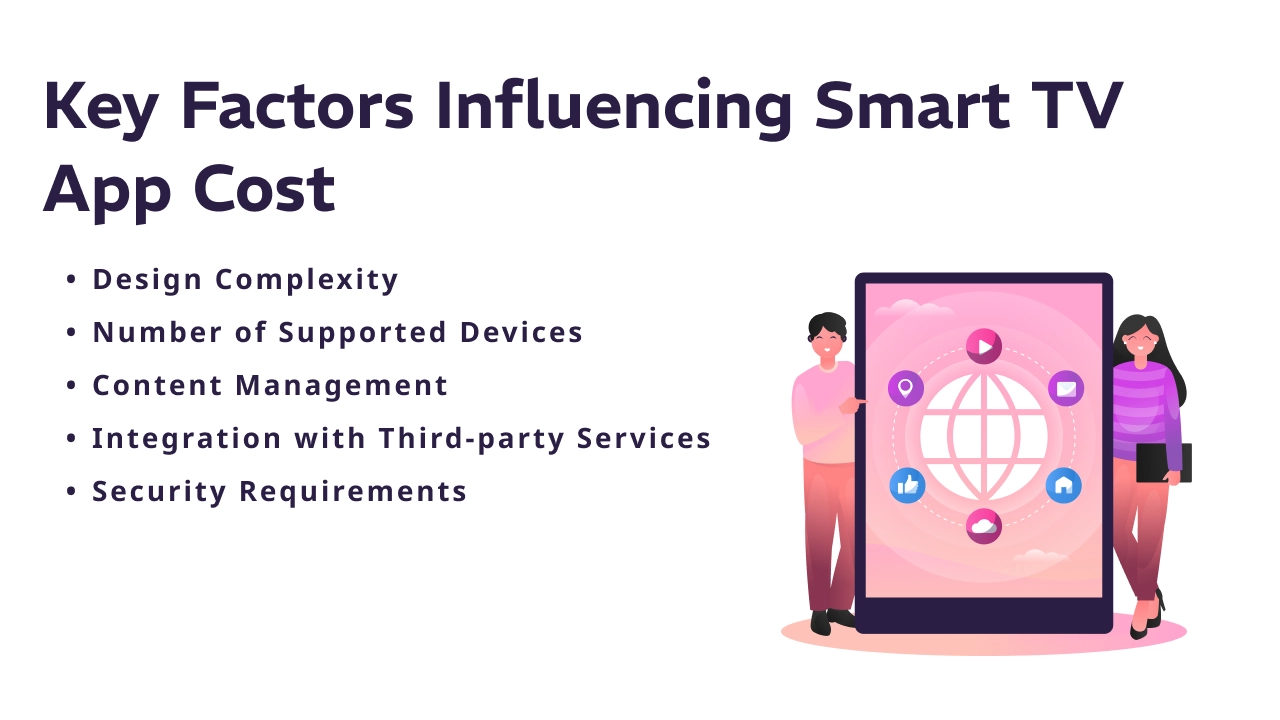
1. Design Complexity
A simple UI focused on easy navigation costs less than a visually rich, interactive design with animations and custom controls.
2. Number of Supported Devices
Supporting a broad range of TV models and OS versions increases testing and optimization costs.
3. Content Management
Integration with existing CMS or building a custom CMS impacts back-end development hours.
4. Integration with Third-party Services
Payment gateways, ad networks, analytics, social media, and voice assistants add integration complexity.
5. Security Requirements
Apps handling subscriptions, payments, or user data need robust security layers, which increase development time.
Essential Development Tools and Technologies
Front-end Development Tools
- Android TV: Android Studio, Kotlin/Java
- Apple tvOS: Xcode, Swift
- Samsung Tizen: Tizen Studio, HTML5, JavaScript
- LG webOS: webOS SDK, Enact framework
- Amazon Fire TV: Android Studio with Fire SDK
Back-end Technologies
- Node.js, Python, Ruby on Rails, Java Spring Boot
- Cloud platforms: AWS, Google Cloud, Microsoft Azure
- Databases: MongoDB, MySQL, PostgreSQL
Video Streaming Technologies
- Protocols: HLS, MPEG-DASH
- CDN providers: Akamai, Cloudflare, AWS CloudFront
- DRM (Digital Rights Management): Widevine, PlayReady
Monetization Strategies for Smart TV Apps
Understanding potential revenue streams can also impact development priorities.
Subscription (SVOD)
Monthly or yearly subscription models like Netflix or Disney+
Advertising (AVOD)
Integrating ads in free apps via banners, pre-rolls, or mid-roll video ads.
Transactional (TVOD)
Pay-per-view or rentals, allowing users to pay for specific content.
Hybrid Models
Combining ads and subscriptions for diversified revenue.
Challenges in Smart TV App Development
Device Fragmentation
Different TV brands and OS versions require extensive testing and optimization.
User Experience Design
Designing intuitive navigation for remote control inputs vs. touch or mouse.
Connectivity Issues
Handling fluctuating internet speeds for smooth streaming.
Certification Delays
Getting through app store reviews and certification can add weeks or months.
Post-Launch Considerations
After launching your Smart TV app, ongoing efforts are crucial for success.
User Feedback and Updates
Regularly updating based on user feedback improves engagement.
Analytics and Data-Driven Improvements
Analyzing user behavior to optimize content and UI.
Scalability
Ensuring the app and backend can handle increasing user load.
Why Choose True Value Infosoft as the Best App Development Company in India for Building Your Smart TV App
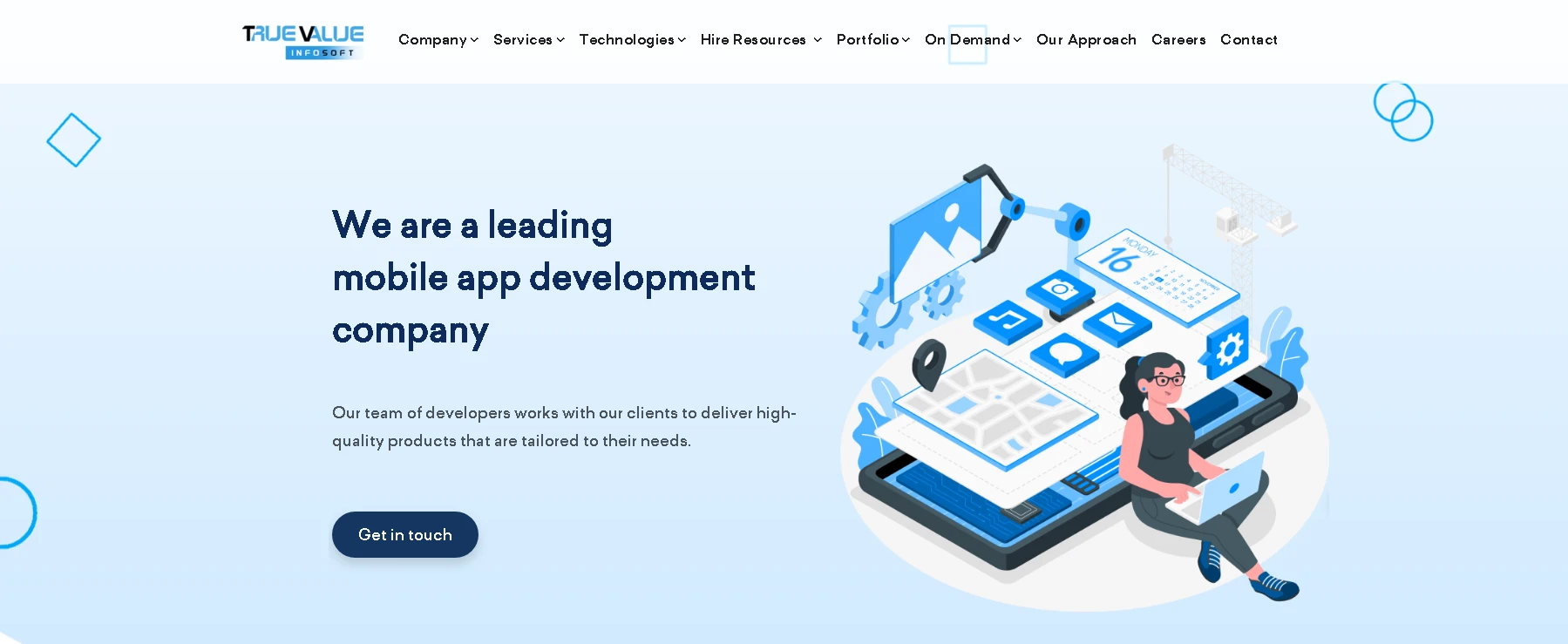
When it comes to building a high-performance Smart TV app, selecting the right development partner is crucial. True Value Infosoft, recognized as one of the best app development companies in India, offers the perfect blend of technical expertise, innovation, and cost-effective solutions. With years of experience in building smart, scalable, and feature-rich apps, True Value Infosoft stands out as the ideal choice for your Smart TV app development project.
Here’s why True Value Infosoft should be your top pick:
- Expertise in Multi-Platform Development: From Android TV and Apple TV to Roku and Amazon Fire TV, they build apps that perform seamlessly across platforms.
- Custom UI/UX Design: Their team crafts intuitive and engaging interfaces tailored for big-screen experiences.
- Cost-Effective Packages: Get premium-quality apps at competitive rates with flexible engagement models.
- Advanced Feature Integration: Voice commands, remote navigation, real-time streaming, and personalized recommendations.
- Post-Launch Support: End-to-end maintenance, performance optimization, and regular updates.
- Data-Driven Solutions: Analytics and user engagement tools built-in for better decision-making.
With True Value Infosoft, you're not just getting a development service — you're gaining a tech partner committed to excellence and innovation in Smart TV app development.
Conclusion
Building a Smart TV app is a multifaceted process that requires thoughtful planning, expert design, and robust development. Costs vary widely depending on platform choice, feature complexity, and geographic location of your development team. On average, a moderate complexity Smart TV app can cost between $40,000 and $150,000 or more.
By understanding the platforms, essential features, cost drivers, and post-launch needs, you can strategically plan your Smart TV app development to maximize ROI and delight your users. Whether you’re entering streaming, gaming, or utility apps, the smart TV ecosystem offers an exciting frontier for digital engagement.
FAQs
Development time varies by complexity but usually ranges from 3 to 6 months for a moderately featured app.
Yes, some frameworks like React Native and Flutter offer limited support, but native development is often preferred for performance and compliance.
Yes, most platforms require certification to ensure app quality and security.
HLS (HTTP Live Streaming) and MPEG-DASH are widely used for adaptive streaming.
Prioritize essential features, choose a single platform initially, and work with experienced developers familiar with your target platform.
